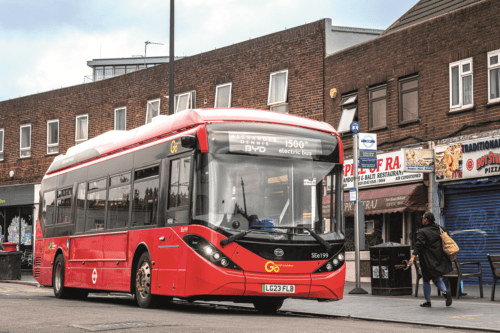
EUROPE
The Europe-wide electric bus market is continuing to grow, with 2,567 battery-electric buses registered in the first half of this year, with zero-emission buses now making up around a third of the market for city buses across the continent.
The latest figures show that MAN has risen in the rankings, with 260 new registrations, second only to Polish manufacturer Solaris, which took the lead with 421 new buses delivered and a market share of 16%. In 2022, MAN ranked in ninth place with 230 deliveries in the full year, while Solaris delivered 342 zero-emission buses and ended the year in sixth position.
BYD-ADL, BYD, 2022 leader Yutong and Volvo remain in strong positions, though Iveco Bus and Mercedes still have some way to go, supplying just 131 and 105 e-buses respectively, representing a market share of 5% and 4%. In the fuel cell market, CaetanoBus sold 28 buses, enough to secure it the first place, the figures, compiled by Chatrou CME Solutions, show.
Overall, in the decade since 2012, Solaris has supplied the largest number, with 1,884 zero-emission buses registered, representing a 12% market share, whilst BYD (outwith its ADL partnership) follows with 1,613. The BYD ADL partnership sits in third place, with 1,491 buses delivered over the period, followed by VDL with 1,338. BYD-ADL subsequently celebrated its 1,500th bus delivery.
The UK leads the way in new e-bus registrations in the first half of 2023, with 524 hitting the roads, followed by Norway and Germany at 346 and 297 respectively. Just 96 fuel cell buses were registered across Europe in the first half of this year, although that represents an increase from 52 last year. Behind Caetanobus is Van Hool which supplied two fewer at 26, though Van Hool remains the longer-term market leader with 132 registrations over the last decade.

